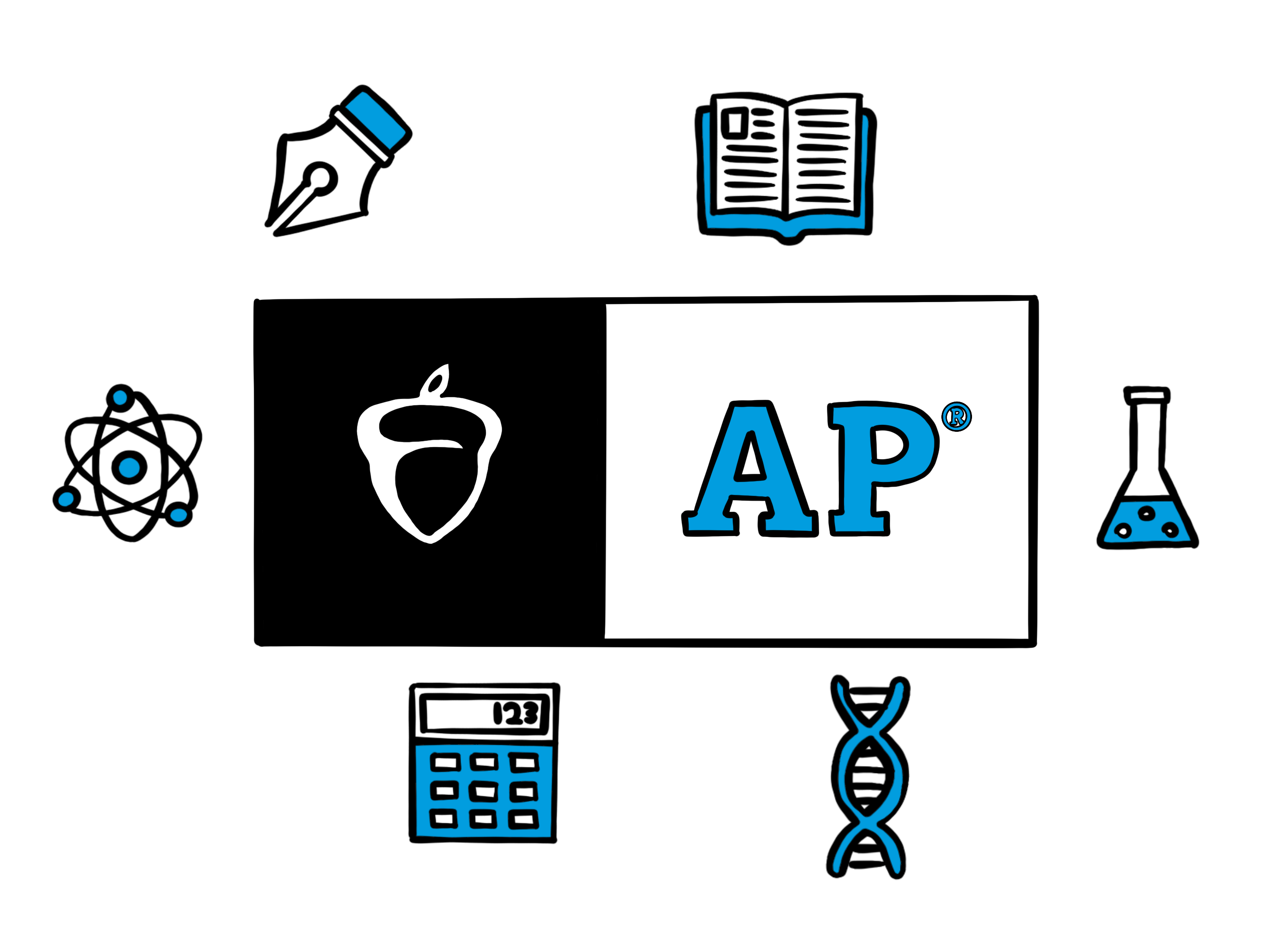Thursday, April 24
A Guide to Ace Your AP Exams
Alice Kim '27 in Features | April 26, 2024

Advanced Placement (AP) exams are college-level standardized exams designed to measure one’s mastery of the content and skills related to the tested subject. Although not officially recognized as an AP school, Lawrenceville offers their students an opportunity to study for these exams within the class curriculum. The class syllabi for numerous courses at Lawrenceville contain many overlapping units with the AP exam content. Furthermore, faculty members are prepared and willing to answer any questions about the exam during consultation.
Jane Atkinson ’24 has taken both AP Chemistry and AP Calculus BC, two exams that align with the classes Honors Chemistry and Honors Calculus BC. Like most students, Atkinson did not self-study as much for these AP exams as “they were more lined up with the school curriculum.” Both classes “[led] up to an AP [exam],” and her teachers prepared her sufficiently for them. Atkinson elaborated that a portion of her Chemistry textbook was “Princeton Review of AP Chemistry,” and her teacher, Mary Calvert P’04 ’05 ’06, would assign AP problems as nightly assignments.
Emily Piggee ’24 shares a different experience with AP exams. Having taken both AP Calculus BC and AP Statistics, Piggee expressed the flaws Lawrenceville’s curriculum has when AP preparation is taken into account. Piggee elaborates that “the courses that [she] has [taken]” at Lawrenceville are “catered not to drill in” but rather to “think beyond the formulas.” Although acknowledging that one of her “greatest takeaways” from Lawrenceville is “learning how to think,” Piggee brings to light that such teaching methods which are common at Lawrenceville are not beneficial “when it comes to AP preparation.” While Piggee agrees that the contents taught during the Spring Term of these 500-level courses are designed to get students ready for AP exams, she had to do “extra” work to feel adequately prepared. In the case of AP Statistics, she practiced her skills through a textbook provided by the school. When Piggee first took an AP exam in her III Form year, she “did not feel… prepared well enough” for AP Calculus BC while she felt relatively “more prepared” for AP Statistics. Piggee states that YouTube videos helped her greatly when practicing the content covered on the AP exam. Whenever she had questions, she would seek aid from her teachers, making appropriate use of her consultation periods and successfully teaching herself information covered by AP exams, yet omitted by the school’s curriculum. Accounting for AP exams, Piggee claims that the school “missed” some required information while delivering more information than needed in certain aspects. Piggee had to “reorient [herself]” so that she “was not doing more than what [she was] supposed to.”
Atkinson recommends taking AP exams because one may “never know what courses [they] will be able to skip in college” thanks to AP credits. For instance, “if [their] college” forces them to take a statistics course, one may skip said course as long as their AP Statistics score meets the standards of the college. Furthermore, Atkinson asserts that AP exams are a “good review” of everything one has “done in a year.” When preparing for AP exams, Atkinson believes that one should “reach out to [their] teacher” to “get support from them” since “teachers [at Lawrenceville] want to help [students] succeed” and “pursue everything [they] want to pursue.”
Piggee advises students to start preparing for AP exams during Winter Term, before the school “tells you to start.” Her reasoning is that Spring Term was not sufficient time when preparing for AP exams for it is too “short.” She further acknowledges the significance of “[asking] questions” when needed. She states that online resources like “Crack AP” come in handy when practicing for AP exams.
AP exams may be overwhelming, especially in a prestigious school like Lawrenceville. However, with upperformers passing down their experiences and tips, Underformers can have an easier time synthesizing information from the school’s syllabi to AP exams.
Related Articles
- A Sweet Return: Melba Reopens with New Flavors and Community Spirit Ella Song ’27
- The Clock’s Ticking: A Rush to Sort Out Scheduling Conflicts Bella Wu ’28
- Debunking the Dining Hall Debate: Is Lawrenceville’s Dining Really That Bad? Isabelle Lee ’27
- Senior Profile: Sophie Cheng ’25 Katherine Qiu ’27
- Dear Pearl: The Reveal! Pearl ... and Riley McKibben ’25
Recent Articles
- Announcing: Valedictorian, Aurelian Speakers, and Faculty Speaker Sophie Liu ’27
- Senior Profile: Sophie Cheng ’25 Katherine Qiu ’27
- Debunking the Dining Hall Debate: Is Lawrenceville’s Dining Really That Bad? Isabelle Lee ’27
- Welcoming Our New VPs for 2025-2026 Sophie Liu ’27
- A Sweet Return: Melba Reopens with New Flavors and Community Spirit Ella Song ’27